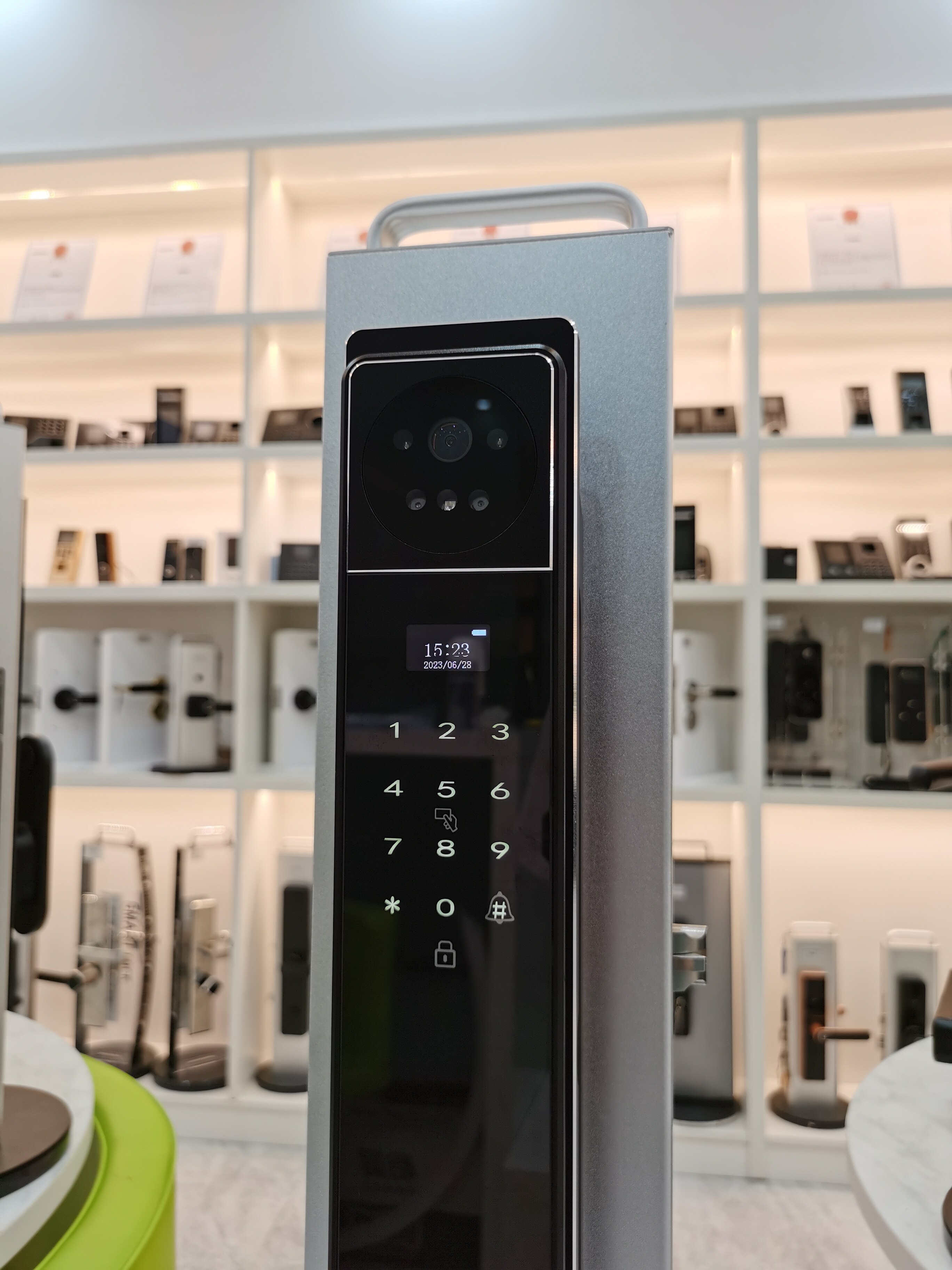Email cannot be empty
Password cannot be empty
Email format error
Email cannot be empty
Email already exists
6-20 characters(letters plus numbers only)
The password is inconsistent
Email format error
Email cannot be empty
Email does not exist
6-20 characters(letters plus numbers only)
The password is inconsistent


Securing Tomorrow: 3D Face Recognition vs. Biometric Rivals
Introduction
Biometric security systems have witnessed a transformative evolution, with 3D face recognition door locks emerging as a cutting-edge technology. This article delves into the intricacies of this innovation, comparing it with other prominent biometric security systems like fingerprint recognition and iris scanning.
3D Face Recognition Door Lock Overview
The underlying principle of 3D face recognition technology lies in mapping facial features three-dimensionally. This nuanced approach provides a distinctive advantage in accurately identifying individuals. The security prowess of 3D face recognition door locks is underscored by their application across various domains, from residential spaces to high-security corporate environments.
Overview of Biometric Security Systems
In the realm of biometric security, fingerprint recognition stands as a stalwart. Its operational basis involves analyzing unique patterns at the fingertips. Additionally, iris scanning, which scrutinizes the intricate patterns within the iris, has gained prominence. Understanding these established technologies is crucial for a comprehensive comparison.
Security Considerations
3D face recognition exhibits noteworthy strengths. Its non-intrusive nature and resistance to spoofing set it apart. Conversely, fingerprint recognition, while widely used, faces challenges related to potential replication. Iris scanning, although secure, may encounter difficulties in variable lighting conditions.
Practicality Comparison
The application scenarios of these technologies vary. 3D face recognition, with its adaptability to diverse environments, excels in both well-lit and dimly lit spaces. Fingerprint recognition may face limitations in harsh environmental conditions, while iris scanning's performance can be affected by changes in ambient lighting.
Technological Adaptability
Examining the compatibility of these systems with contemporary technology is imperative. The integration of 3D face recognition into smart home systems is seamless, providing a cohesive security experience. Understanding how these technologies align with broader technological trends enhances decision-making for potential adopters.
Privacy and Security Concerns
While the merits of biometric security are evident, considerations about data security and privacy linger. 3D face recognition's non-intrusiveness is advantageous, but data protection measures must be robust. These concerns echo across all biometric technologies, necessitating a holistic approach to security implementation.
Installation and Maintenance
A practical evaluation involves assessing the installation and maintenance aspects. 3D face recognition door locks, with their user-friendly installation processes, cater to a broader audience. Maintenance considerations, however, should include periodic checks to ensure optimal performance—a factor applicable to all biometric systems.
Cost Considerations
Cost is a pivotal factor in adopting any technology. 3D face recognition door locks may require a higher initial investment, but their long-term benefits and security advantages justify the expenditure. This financial analysis, when juxtaposed with the costs associated with fingerprint recognition or iris scanning, aids in making informed decisions.
Future Trends
Anticipating future developments is essential for staying at the forefront of security technology. As artificial intelligence continues to advance, integrating with biometric systems, the landscape is poised for innovations that could redefine security standards.
Conclusion
In conclusion, the comparative analysis reveals that 3D face recognition door locks offer a robust blend of security and practicality. While each biometric system has its strengths and limitations, understanding the nuanced differences allows for informed decision-making based on specific needs and preferences. As technology evolves, embracing the future of biometric security entails staying attuned to emerging trends and adopting solutions that align with evolving security paradigms.

